London Summary by Samuel JohnsonSamuel Johnson wrote a poem titled London not long after relocating to the city. His first significant published work was written in 1738. The poem's 263 lines mimic Juvenal's Third Satire, which is imitated by the way Thales decides to depart London for Wales in the poem. Johnson copied Juvenal because he admired the Roman poet and was also adhering to the popular Augustan poets' style of the 18th century, led by Alexander Pope, who valued copying classical writers, particularly for new poets making their first forays into published verse. 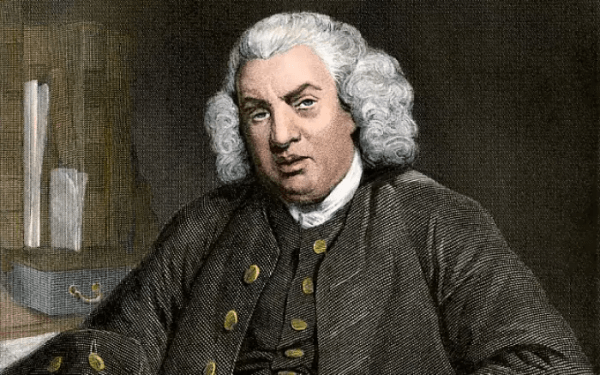
Throughout 1738, London was published under a pseudonym in several editions. It garnered positive reviews right away, including one from Pope. Pope had previously commended Messiah, Johnson's Latin translation of Pope's poem, the first time he had done so for one of Johnson's pieces. The political underpinnings of the poem contribute to some of this appreciation. From a contemporary perspective, Johnson's subsequent poetry, The Vanity of Human Wishes, along with his other writings, such as A Dictionary of the English Language, Lives of the Most Eminent English Poets, and his essays for periodicals like The Rambler, The Idler, and The Adventurer, eclipse the poem. Summary of the London:By the Thames River, the speaker waits alongside his friend Thales. He regrets seeing his friend leave London for the country but respects and approves of Thales' choice. Everything seems quiet for a moment as the two men look across London. Thales then scowls and explains why he's decided to leave the city. 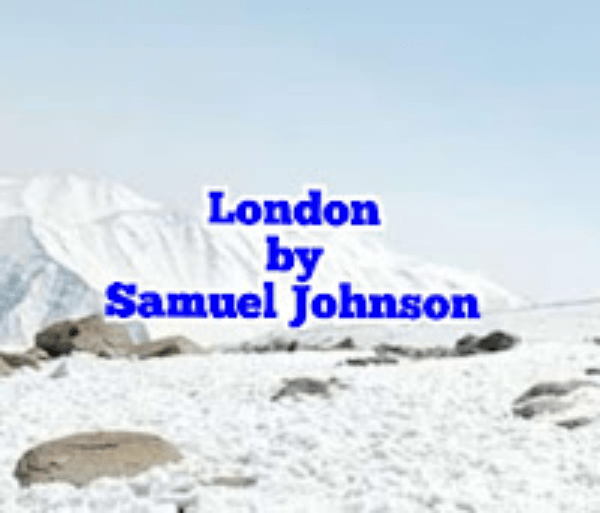
Thales believes the present administration's actions have led to a downturn in London and England. The country was once nobler and more just. King Edward and Henry were valiant leaders who achieved significant military victories over England's adversaries. Additionally, there were noble and inspirational kings like Alfred the Great. Such kings fostered a setting that reduced crime. According to Thales, half of England's offenders might have been housed in one prison during the reign of Alfred the Great. He uses these historical figures to highlight the heights of brilliance from which London and England have descended. The crime rate in London has increased, and those who don't break the law are preyed upon by those who do. Hunger is a global problem. The government exploits them by supporting "pirates" who prey on Englishmen. While this happens, the country's leaders can amass wealth by holding lotteries and levying taxes on the underprivileged. Londoners are now at the mercy of such plutocrats because these leaders are motivated by a love of money rather than by the pursuit of lofty goals. The whims of people with less character but more money are imposed on the working classes. As "falling houses thunder on your head," Thales feels like the entire city is disintegrating. Although he places some blame for these ills on the mistaken culture, he mostly blames the corrupt and greedy government, lamenting how each official continually strives to "raise his treasures higher than before." 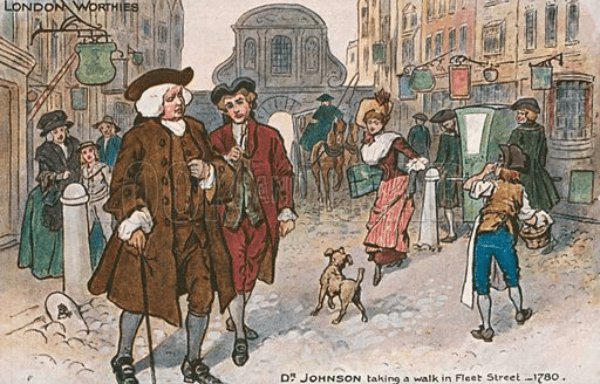
Thales requests to be placed in an environment where virtues like wisdom, kindness, and honor are valued highly. He wants a life that's better than his current one in London. After the poem, he tells the speaker that he still has a lot to say but that they are out of time because his boat has arrived. London:London is an example of Neoclassicism, a replica style from the eighteenth century. The composition was inspired by Juvenal's Third Satire, which narrates the tale of Umbricius escaping Rome for Cumae to live safely from the vices and dangers of the capital city. The character Thales flees from the difficulties of London in Johnson's rendition and goes to Cambria (Wales). Johnson chose Juvenal as a model since he enjoyed the author's creations. The opening line of Juvenal reads, "Quis inept [iniquae] / Tam patients urbis, tam ferreus ut teneat se?" Who is so iron-willed, so patient with the foolish [wicked] city as to contain himself, as the poem (Juv. 1.30-1) reads? 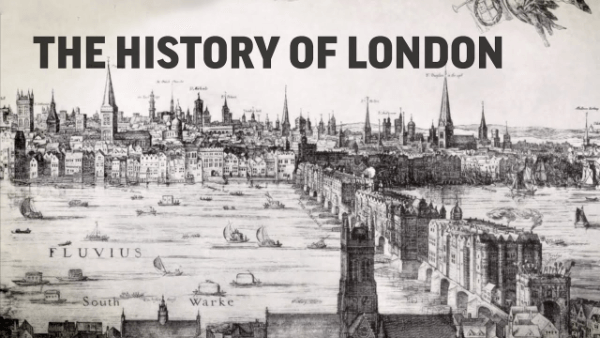
The poem explores London's many problems, emphasizing criminal activity, graft, and the lack of the underclass. These many abstract issues are personified as creatures who want to destroy London to accentuate his point. As a result, the tales of Evil, Rapine, and Accident "conspire" (line 13) to attack the citizens of London. As the poem begins:"Even though love and pain in my heart rebel, When wounded, Thales departs from the town, However, I still applaud his choice in my calmer thoughts. (I applaud the hermit but lament the friend) The long-term resolution, far from vice and London, To breathe cleaner air in farther-off fields, And, fixated on the lone shore of Cambria, Give St. David one more loyal Briton. - lines 1-8 Though it is uncertain who Thales represents, probably, he probably does so for Richard Savage, Johnson's acquaintance who left London to go to Wales. The line "Slow rises worth, by poverty depressed" (line 177), which is the poem's main theme, reveals the poem's main theme. When the poetry must be cut short, the narrator says: I could add a lot, but you should focus on the boat. The receding tide calls me back from the land: Until we meet again when youth, health, and money are spent To find safety, you flew to Kent's Wilds; And tired of me with foolishness and crime, Angry amounts of warnings repeated; If you do not reject your friend's assistance at that point, Keep fighting against vice; abandon your Cambrian shadow; Again he channeled his wrath into virtue's cause. Your page will come to life with your satire. - lines 254-263 Politics:The leader of the Whig party at the time, Sir Robert Walpole, disapproved of the ideas expressed in "London." The poem is overtly political, and the words critical of George II reflect a Jacobite political outlook. The poem alludes to the monarch, even if it doesn't mention George in line 50 ("Let ____ live here, for ____ has learned to live"). The narrator does not mention the government until the poem's last line, where he states: Ye senatorial band, present your plans. Whose efforts and methods help the land sink: Ropes shouldn't be lacking in the alluring spring, an escort for the king to be set up. lines 244-247 The House of Commons Committee on Ways and Means, sometimes known as "Ways and Means," serves as the vehicle through which the king levies taxes on the populace. Johnson satirizes several government functions, including this one. 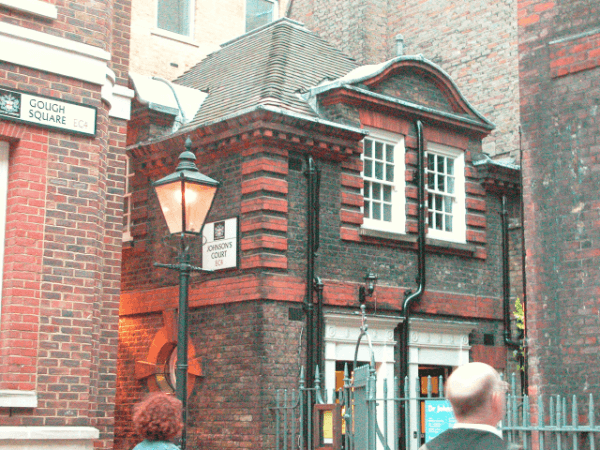
Attacking the Robert Walpole-led Whig political party was possible through the city of London. Johnson especially compares the actions of George II of England and Wharton to those of the Emperors of Rome in the aftermath of the demise of the Empire of Rome. Brean Hammond says one component of the attack was "a sentimental exaltation of English history which worked together with an image of the present as one that was in the grip of forms of depravity never before experienced." This "nostalgic glorification" makes numerous allusions to Queen Elizabeth and her victory over the Spanish invaders while alleging that Walpole wants to see Spain seize England's interests in trade. Johnson added lines about England's conflict with Spain. Has heaven, out of kindness towards the poor, reserved "Don't pathless wastes or undiscovered shore," "There are no hidden islands in the vast main," or "There's no calm wilderness yet claimed by Spain"? The lines serve as a metaphor for how amazed the Europeans were at the magnitude of the Spanish Empire in modern Latin American history. Background:Johnson and actor David Garrick, a former student, shared a home in London in March 1737. The two stayed with Richard Norris, a distant relative who lived on Exeter Street, thanks to Garrick's connections in London. Shortly after arriving, Johnson left to finish his play, Irene, in Greenwich, close to the Golden Hart Tavern. In October 1737, Johnson finally took his bride to London; they initially lived at Oxford Street before moving to 6 Castel Street. Johnson soon secured a position with Edward Cave and contributed to his publication, The Gentleman's Magazine. Johnson's efforts to the journal and other publishers were, according to Walter Jackson Bate, "almost without precedent in breadth and variety" and "so many, so diverse and dispersed" that "Johnson even could not make a full list." Johnson was introduced to Pope's "imitations" of Horace and observed how they were applied to denounce modern political corruption. Johnson chose to copy Pope by producing his copycat since the format and subject matter were well-liked. London was published anonymously in May 1738 and saw publication in a second edition that same year. This was one of his longest "non-dramatic public poems" and his first significant work to be released to a large audience. The book was not intended to be a general satire; rather, Johnson wrote it to show off his writer's talent and gain popularity so that he might advance his literary career. Themes:Themes of corruption, hypocrisy, and rural life are all present in Johnson's poem. Thales asserts that London has a significant amount of corruption. The thugs are prowling the streets and can rob anyone at any time. The city is full of hypocrites. Because it is much more pure, residing in a rural area is far preferable to residing in a big city in London. Rather than living in the city, Thales would want to travel. 
A present political issue is also highlighted in this poem. Johnson discusses the unethical ways politicians profit from the public's beliefs. Only those who comply with their commands are favored, and they defraud the people. They bribed pensioners to observe their laws, and the fictitious authorities never lawfully administered justice. Even worse, some politicians implemented waste tax laws purely for robbery. The speaker claims they ought to give back everything they took from people. Response to Criticism:Johnson sharply critiqued his poem; after revising it in 1748, he began despising the lyrical imitations genre, of which London was an example. The pastoral bias of the poem, which favors the countryside over the city, was another part of the poem that Johnson despised in his later years. His contemporaries, however, did not share his opinion. Although it did not happen immediately, Alexander Pope prophesied that his writer "will soon be d�terr�". It would be Pope's second time directly praising a Johnson piece. The book was not universally welcomed because of the political uproar it caused among supporters of Walpole's ministry and the Hanoverian government over its political themes. Up until a few years later, when he started working on his A Dictionary of the English Language, Johnson was not known as a significant literary personality. For �10, Johnston sold the rights to the bookseller and printer Robert Dodsley. Later, when The Vanity of Human Wishes overtook London in Walter Scott and T. S. Eliot's estimation, London was recognized as his second-greatest poem. Scott and Eliot were accurate in their assessment. Later critic Howard Weinbrot concurred, claiming the London riding is worthwhile studying. This Poverty of People's Dreams constitutes one of the many great songs in the English tongue." Similar to Robert Folkenflik, who asserts that The Vanity of Human Wishes is superior, this poem isn't Johnson's best. For some critics, such as Brean Hammond, the poem is just "there is no superior to an almost robotic update of Juvenal's third Satire." Others think the poem is "masterly in its versification," citing Walter Jackson Bate as an example. Conclusion:Samuel Johnson's London presents eighteenth-century English anxieties about discord and decay through the antithesis of the city and the country.
Next TopicRefugee Blues Summary
|
 For Videos Join Our Youtube Channel: Join Now
For Videos Join Our Youtube Channel: Join Now
Feedback
- Send your Feedback to [email protected]
Help Others, Please Share









